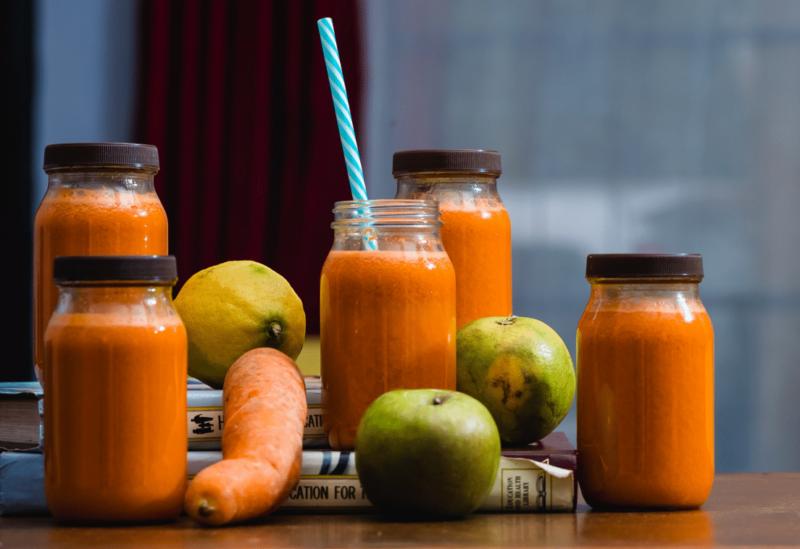Food and Beverage Trends at Expo West: Plant-Based Products Drive Innovation, Increased Competition for Funding, Shelf Space and Consumer Wallets

- Jennifer Rosenthal
- |
- April 16, 2019
Much of the focus this year at Expo West, the premier natural foods trade show, was on plant-based products. From “real” food to medicinal infusions and environmentally friendly packaging trends – plant-based products are everywhere. As head of the firm’s food and beverage industry practice, I joined attorney Samantha Pjesky at this year’s show to keep tabs on food and beverage industry trends.
As more plant-based products enter the food and beverage market, we’re seeing emerging and established brands innovate and compete for financing and acquisition capital and for favorable terms when negotiating contracts with brokers, co-packers, distributors and retailers.
Here’s a closer look at four trends that we expect to dominate the food and beverage industry throughout 2019 and early 2020.
1. CBD everything.
CBD-infused food, beverages and supplements have put this plant-based product on a fast growth and adoption track in the last year, due in part to the passage of the Farm Bill, which provided some clarity for CDB products, and due in part to increased visibility for the CBD space from more players entering the market recently. Navigating the legal and regulatory challenges that come with the penetration of CBD products onto store shelves and direct to consumer requires specialized expertise in both the food and beverage and CBD industry. Investors interested in diving into the industry, and brands interested in capital raises and acquisitions to go to market or gain market share must take care to navigate both industries simultaneously. KO client BIGR Ventures was one the first institutional investors to invest in a CBD product.
2. Herbivores rejoice.
Plant-based products continue to dominate the industry with products ranging from ‘Nana Chips – vegan, paleo, grain-free, gluten-free banana chips – to mushroom jerky to Peatos – think pea-based Cheetos. Due to the increased popularity of plant-based diets, there is growing retail acceptance, more access for consumers and ongoing innovation of plant-based products and alternative protein sources that can reduce negative environmental impact.
“The shift towards plant-based foods has gained significant momentum in the last few years and we expect to see even more mainstream adoption in the future as consumers seek healthier plant-based alternatives for themselves and the environment, and as brands continue to innovate and introduce great-tasting, plant-based products,” said Ben Fenton of Boulder Food Group, a KO client and venture capital firm that partners with early-stage food and beverage consumer product companies.
3. Less is more: Real, simple ingredients.
Consumers are also increasingly interested in real, wholesome, simple (and pronounceable) ingredients, and products with fewer ingredients overall. Products like Bobo’s Oat Bars that are made from 100% whole grain oats and other wholesome ingredients are taking off as a result, and it’s paying off for their bottom line. The company is growing rapidly by capitalizing on this preference for real ingredients through strategic product placement, smart distribution strategies and product expansion.
“There’s a growing preference for real, wholesome ingredients,” said Luke Vernon from Ridgeline Ventures, a KO client and venture investment firm for natural foods and active lifestyle brands. “We are proud to support brands like Bobo’s which has captivated loyal fans nationwide with a wholesome snack produced in a small-batch baking process.”
4. Responsible sourcing and packaging.
Natural product companies have also taken note of consumers’ preferences for sustainable practices and are increasingly integrating responsible sourcing and packaging – including many plant-based packaging options like sugarcane, corn, paper, wood and even coconut husks and mushrooms – into their business models. For example, new entrants to the food and beverage space like Square Baby, a baby food meal system offering 100% daily nutrition, have prioritized recyclable and compostable packaging and shipping alternatives. Other companies are using regenerative agriculture to build their products and reverse the environmental impact of agriculture.
The race is on for brands of all sizes to capitalize on these food and beverage trends, and taking a proactive and strategic approach to transactions and agreements helps companies achieve meaningful business outcomes. Our team of food and beverage industry experts works with a wide variety of brands, investors and acquirers to negotiate better deals, streamline financing and orchestrate complex purchase agreements as well as help companies scale by providing assistance with day-to-day manufacturing, supply, co-packing and distribution contracts.
Jennifer Rosenthal is a partner and head of the food and beverage practice at Koenig, Oelsner, Taylor, Schoenfeld & Gaddis PC (KO), an innovative, Colorado-based corporate and commercial law firm that specializes in food, beverage and consumer goods. Reach Jenn at [email protected].




